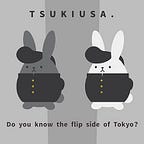HIEA 115 Medium #2
In this class, we learned that many of the archives of Korean, “buraku,” and Okinawan women and men who lived primarily in the Japanese countryside are incomplete. I think this is very interesting. There are archives means the people at time did try to record something. But why did they leave the archives incomplete? I remember in the class of week 7, the professor mentioned that so much information of Korean workers and Japanese villagers are missing. We could only find the proof of these people did exist, but we will never know who they are and how their lives looked like. My explanation to this phenomenon is sometimes people only record things that they think are important. Also, many archives are written only for the moment, not for recording history. Therefore, these documents can only be understood by the people who wrote them or the people who actually lived under the circumstances. We want to know what happened to those people from the perspective of history, but the ones who wrote those archives did not think complete the information is necessary. However, even if the archives are incomplete, they are still good materials to analyze history. This is because archives are actual documents at the time which means the reliability is high. Knowing a part is always better than knowing nothing. We have to thank these archives to tell us that those Korean people, “buraku” people, and Okinawan people have ever lived in the world.
I think incompleteness is very common when researching on history. Incompleteness can due to many reasons. For example, the one I mentioned above, the information were considered not important. Other reasons might be the archives were damaged or missing, a legit writing system does not exist, ancient people were not used to record things for history, etc. I have studied Japanese history, Taiwanese history, Chinese history, American history so far. There are always incompleteness and uncertainty. We can use the historical materials to make a collage of how an old society might look like, but we cannot know whether we correctly restored the situation or not. Most of us are just ordinary people. There are too many of us in one city, one country, one region, and the whole world. It is impossible to record everything about everyone of us into history. History only keeps important and useful information. My answer to the question “What sorts of experiences and relationships have been important to you in these times, that you think may not be recorded in official archives (Brand’s “right hand ledgers”) or make it into narratives of historical transformation?” would be nothing would be recorded in official archives. Unless I am a super great person or I was recorded in some important documents, or nobody in the future would have a chance to know who I am no matter how many important experiences and relationships I have in my lifetime.
As I said above, I believe history only remember important things. There are too many unimportant things that are not needed to be recorded. Of course, it is good to record as many details as possible for future historians to understand earlier times, but history is not trivia or personal diaries that show everything. For example, when future people look back to 2024, they might see the relieve from COVID, the Israel-Palestine conflict, the US presidential election because these are important events. However, they would not know everyone who suffered COVID and the Israel-Palestine conflict. It is impossible to record all people in the world into history, but we can tell future people that we at least ever lived through history. This is why history is very important and historians are always trying to restore civilizations that we are not familiar with.
If it is possible, I would want the future people to know who I am. One reason is I do have a dream to be a great person and be known by many people. Another reason is because I have autism. It is relatively rare for a girl to have autism. Also, I am high-function autistic on the autism spectrum which means I have the ability to learn and become almost the same as non-autistic people. After more 10 years of learning, most of the time, I look like a normal person now. No one could think of I have autism. Because of autism, I have to work harder than other people in shadow. Many parents often make jokes about I am a special case for girl autistic patient and should publish a autobiography someday in the future. Even though I always take may parents’ words as jokes, I still sometimes dream about I actually become a famous case in the history of autism. This is the only time that I would think about being involved in the river of history.
I think history is not personal. History is a study that helps people understand different time periods and different cultures. Not everything has to be written, but anything can be a clue for future people to analyze history. If there is nothing that can be considered historical materials successfully kept, then a culture or a civilization can completely disappear from earth. Therefore, it is necessary to record information of different cultures and civilizations. Incompleteness always exists because history does not record everything, but it is also good to imagine ancient times through history. As a Taiwanese study in Japanese Studies, I am glad that both Taiwanese history and Japanese history are kept relatively clearly. I always feel interested when learning about how my ancestors lived and curious about the parts that we do not know at the same time. It is also interesting to learn about Japan in Taiwanese history and Taiwan in Japanese history. Therefore, I think writing other people’s histories is totally not a problem as long as the history is correct.
